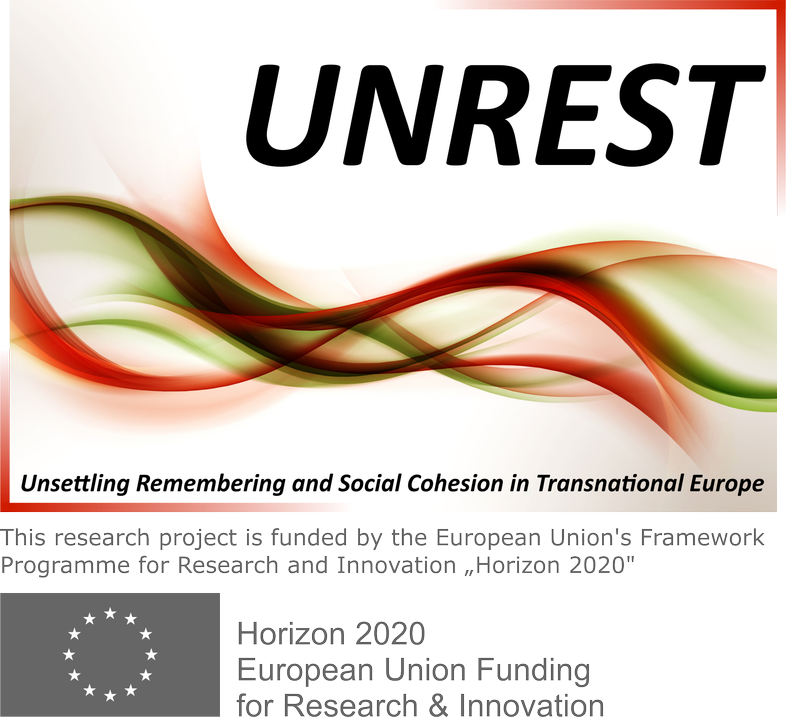UNREST will generate new empirical data for testing, revising, and fine-tuning the key concepts of antagonistic, cosmopolitan and agonistic memory. For that purpose, the experts collaborating in work package “War Museums” will provide a thick description of the mentioned European museums.
Firstly, on the basis of archival research and press analysis, the researchers will examine the history of the origins of these museums seeking answers to the questions: What were the circumstances of their establishment and/or of the set-up of the new exhibitions? Which local and central state authorities, associations, historians and museum practitioners have played a decisive role in the founding process and the architectural and exhibition designs? What controversies have occurred during the planning stages and thereafter? How has the public responded to the plans and the resulting strategies of remembrance? How do the institutions fit into regional, national and transnational memory discourses? The researchers will also conduct in each case 5-10 semi-structured interviews with main stakeholders: museum directors, curators, scientific advisers, politicians and other representatives of important organizations and institutions involved in the process of creating the new museums and exhibitions. They will ask about their aims and theoretical assumptions and about the practical and theoretical challenges the museum makers faced during their work. In this way, the empirical analyses pursued in work package “war museums” also serve the purpose of building relationships of trust that will play a decisive role for the successful implementation of the additional impact activities described in work package “Creation of Cultural Events”.
In the next stage, using a set of guidelines developed on the basis of the theoretical framework, the categories and criteria elaborated in work package “Theory and Methodology” of the UNREST project, the team members will conduct a detailed analysis of the museum exhibitions to learn about their narrative and how it is being delivered. They will examine the extent to which the selected museums actually follow a cosmopolitan approach to history and heritage of war and include also elements of an antagonistic or agonistic narrative. All the exhibitions will be visited together and discussed by the whole team. The material from the discussion will then be included in the reports and the articles written by the researchers. Such an approach will not only ensure the coherence of the whole work package but it will also make the analysis richer, more balanced and versatile. Moreover, the minutes from the discussions will form interesting material promoting a self-reflective analysis among the researchers and their different, also nationally conditioned approaches to history and historical exhibitions.
Finally, at each of the museums, the research team members will conduct 20 semi-structured interviews with museum visitors asking them about their initial expectations and their perceptions of the exhibition. The questionnaires for these interviews will be prepared on the basis of previous research. The researchers will interview visitors from the country and abroad, from different age cohorts and having different educational backgrounds. The interviews will help in defining the strong points and deficits of such cosmopolitan museum narratives from the visitors’ perspective.
We expect that the teams assembled in work packages “Mass Grave Exhumations” and “War Museums” will approach the goal of agonistic memory from different vantage points. The scholars of work package “Mass Grave Exhumations” focus on contemporary controversies about new sites of memory; they approach agonistic memory from the vantage point of unsettled, ‘hot’, antagonistic memories. In contrast, their colleagues in work package “War Museums” study the history of well-established institutions of cultural memory; they reflect about the feasibility of agonistic memory on the basis of a critical analysis of settled, agreed upon memory compromises.
